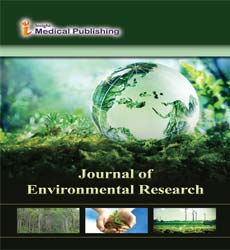Philippine solid waste segregation/disposal as a community response to the impacts of climate change
Abstract
Solid waste management in the Philippines has gone a long way in protecting the environment and as a preventive measure to mitigate the negative impact of climate change. The Philippine Law on Solid Waste management was carefully crafted so that the people of the community as stakeholders can respond to the impacts of climate change. Waste segregation is included in the law because it is more convenient to recycle. Besides, all garbage should not be disposed of since recycling and recovery is an important aspects of the economy. Effective segregation of wastes means that less waste goes to the sanitary landfills. The garbage could also be recovered to restore its economic value. Withal, the cost of land is increasing and the economic lives of a real estate property including its surroundings diminish in value because of the chemical toxicity the garbage /trash introduces in the soil. It is without a doubt that Effective Solid Waste segregation and disposal is paramount in environmental protection-- from pollution to contamination. It can be harmful to people and the environment if proper waste segregation and disposal is not implemented. Land, water and air pollution can all be the result of improper waste disposal and occurs when either of them becomes contaminated with hazardous materials and obnoxious compounds. Not only does this contribute to the creation of greenhouse effects but also causes significant harm to marine and wildlife.
Open Access Journals
- Aquaculture & Veterinary Science
- Chemistry & Chemical Sciences
- Clinical Sciences
- Engineering
- General Science
- Genetics & Molecular Biology
- Health Care & Nursing
- Immunology & Microbiology
- Materials Science
- Mathematics & Physics
- Medical Sciences
- Neurology & Psychiatry
- Oncology & Cancer Science
- Pharmaceutical Sciences
